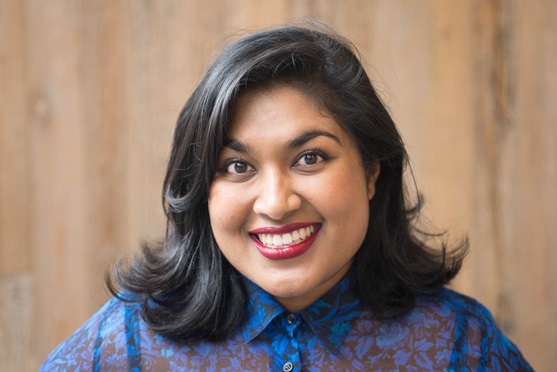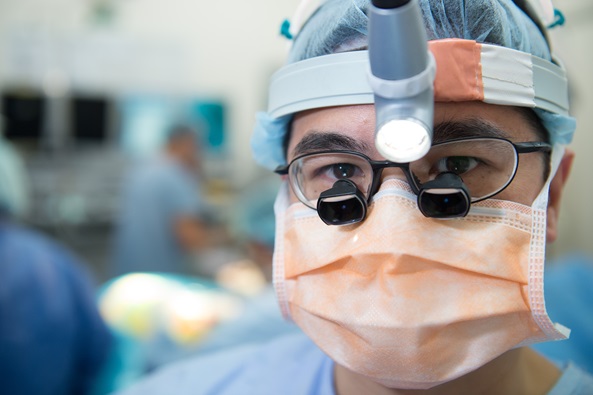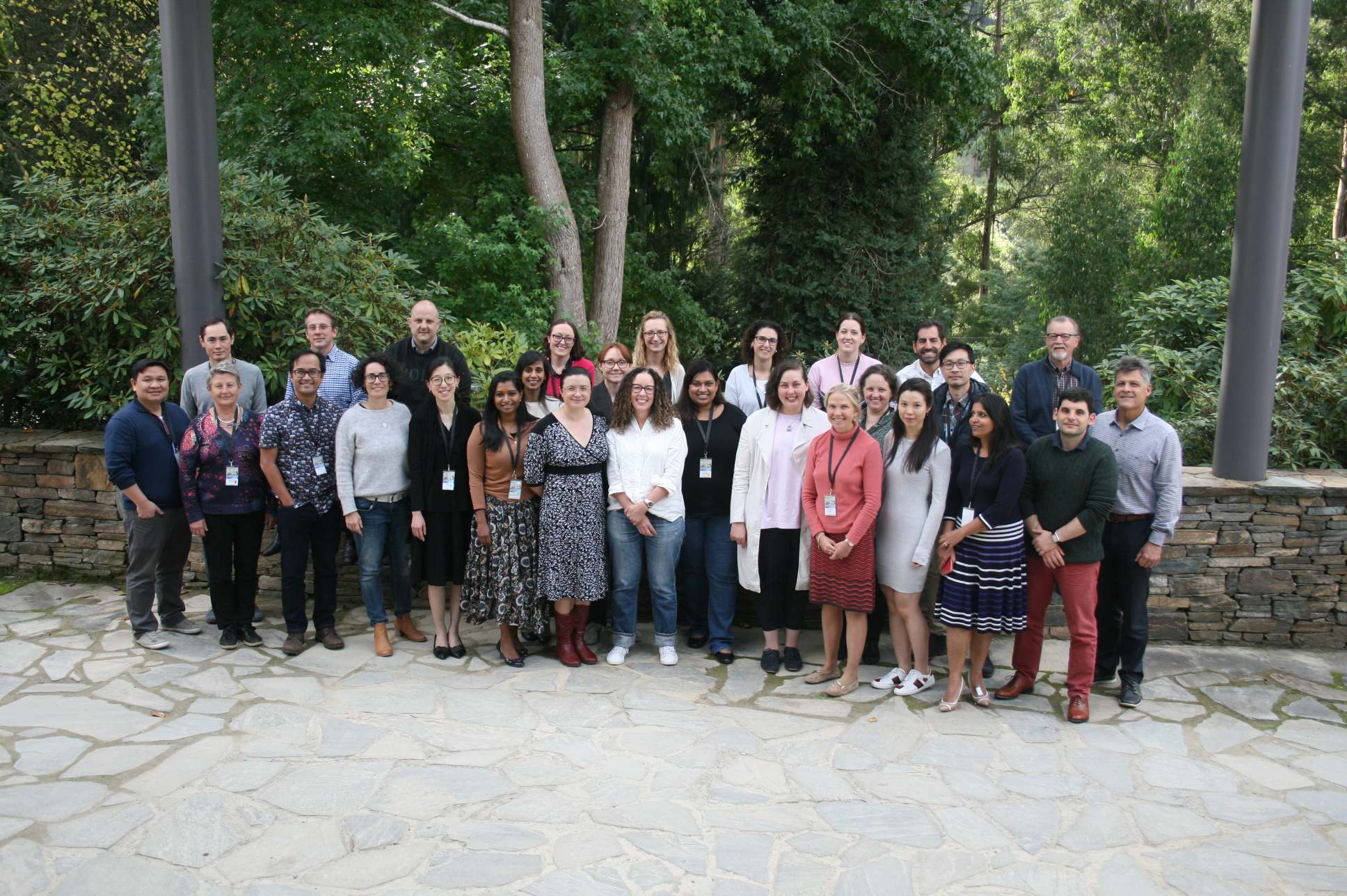Younger Fellows in the Media
Younger Fellows in the RACS Surgical News
This article originally appeared in Surgical News, Volume 23, issue 1
Fellowship Services – supporting RACS Younger Fellows
More than 1500 Younger Fellows are supported by the Younger Fellows Committee, with representatives from Australia and Aotearoa New Zealand. The annual mentoring program, matches Younger Fellows to an experienced surgeon within the College.
What are Fellowship Services?
One of the benefits of becoming a RACS Fellow is that it opens a wide range of opportunities to engage with peers and access specialised support and knowledge. The Fellowship Services department was created in 2005 to bring together various parts of RACS that support Fellows in engaging with the College, each other, and the wider surgical profession.
Fellowship Services assists RACS Fellows with the administrative aspects of Fellowship—from admission to retirement. It also maintains our valued library services, which add to the wealth of knowledge of our Fellows—be it for research or for practice.
The department also facilitates opportunities for Fellows to connect with their peers in their speciality or interest group, promotes standards and professionalism within those areas, and helps collaborate and share knowledge, all of which will shape the future of the surgical workforce. Fellowship Services also looks after the Indigenous Health Committee, which promotes and supports Aboriginal and Torres Strait Islander and Māori health equity and cultural safety.
RACS Younger Fellows
One of the largest speciality groups supported by Fellowship Services is the Younger Fellows section. Each newly admitted Fellow automatically becomes a member of the Younger Fellows section, remaining a ‘Younger Fellow’ of the College for the next 10 years. More than 1,500 Younger Fellows are supported by the Younger Fellows Committee, with representatives from all regions of Australia and Aotearoa New Zealand. Specific services are available for Younger Fellows and they are encouraged to participate in the activities, governance and development of the College. The Younger Fellows are represented by the Younger Fellows Committee, whose members represent each state and region, and includes representation from interest groups such as academic surgery, the RACS Trainee’s association (RACSTA), and the RACS Council.
Pecky De Silva, Chair of the Younger Fellows Committee, explains: “The Younger Fellows Committee represents the needs of the Younger Fellows of RACS and ensures that their specific early career concerns are kept front and centre by the College. We try and highlight to the Younger Fellows the opportunities to become involved in the College through committees, teaching, and attending courses”.
The Younger Fellows section provides important opportunities for Younger Fellows to network, collaborate and share knowledge. One of these is an annual mentoring program, which matches Fellows to an experienced surgeon within the College. These mentoring pairs meet regularly—either over video conference or face-to-face—to discuss issues they may be facing in their surgical careers and to share wisdom. In 2021, the program matched 13 mentor-mentee pairs.
Dr Edwina Moore, a Breast and Endocrine Surgeon from Victoria says of the program: “I was fortunate to be matched with an excellent mentor in my same subspecialty and I have enjoyed getting to know them through email and phone conversations. The conversations have been fruitful,” Edwina says. “It’s great to have someone I can talk to informally about clinical conundrums, difficult patients and practice management.” The Younger Fellows Committee also provides several travel grants sponsored by the Medtronic and Bongriono groups. These grants fund overseas travel for Fellows who wish to undertake speciality training, bringing back valuable knowledge to Australia and Aotearoa New Zealand. The grants assist the RACS Fellows in their careers and add to the rich expertise of our surgical workforce. Dr Ryash Vather, who won a Younger Fellows travel grant in 2020, said: “I was fortunate to receive a Bongiorno Younger Fellows Travel Grant in 2021 to undertake an advanced Pelvic Exenteration fellowship at St Marks Hospital, London. The volume and complexity of the work here has made for a rich learning experience to date, and I look forward to bringing these newly acquired skills back to serve the population of South Australia.”
Younger Fellows Forum
An annual three-day forum for Younger Fellows takes place during the weekend prior to the RACS Annual Scientific Congress in May. This forum provides a valuable and unique opportunity for Fellows to immerse themselves in issues facing Younger Fellows and the workforce in general. By the end of the forum, attendees from Australia and Aotearoa New Zealand formulate several recommendations that are taken to the RACS Council. Some examples are issues of sustainability or workforce burnout. The forum is an opportunity to shape the future of the surgical workforce.
Associate Professor Jason Chuen, a vascular surgeon based in Melbourne, recalls attending the Younger Fellows Forum in 2008, shortly after he was admitted to the College. He said it “opened my eyes to the fact that there is a whole section of our College that welcomes engagement with its members with open arms. Up until that point the College had seemed like an abstract organisation that told me where to go, what hurdles I had to jump over, and how high to jump.” After attending the forum, he came to think of RACS as a “member-led organisation that is only as good as what we put back into it.”
Associate Professor Chuen encourages newly admitted Fellows to get involved in the College as a way of broadening horizons, learning new skills, and shaping the College for the generations to come. “It is very common to think that RACS is a stick-in-the-mud organisation bound up in tradition and ceremony,” he says. “But the truth is that all of those things are true only if we don’t do anything to change them.”
Participants in the RACS Younger Fellows Forum, 2021
Younger Fellows and Digital Health
The Younger Fellows Committee maintains a wide engagement with other stakeholders and organisations in Australia and Aotearoa New Zealand. Through its partnership with the Federal Australian Digital Health Agency (ADHA), the committee ensures it is on the forefront of technological innovation in healthcare. The ADHA creates and supports healthcare professionals in using products such as My Health Record (MHR) and Electronic Prescribing technologies.
In 2021, the ADHA and the Younger Fellows Committee created several ‘Digital Health Champion’ roles, where RACS Fellows use these technologies, including My Health Record. These champions provide feedback to the ADHA as well as sharing knowledge with other RACS Fellows. This ensures that the ADHA and the surgical profession continues to share knowledge about how Fellows use health technologies and innovations.
Dr Nipu Jayatilleke has signed up to be a RACS digital health champion. She says that using digital technologies in everyday work is second nature to many younger surgeons. “My generation is arguably one of the first generations of surgeons who grew up in a world where information technology was a natural part of our lives as children. For us, being digitally connected in your work is not an imposition—it’s a natural extension to how we conduct many aspects of our lives.”

Dr Nipu Jayatilleke, RACS Digital Health Champion
Getting involved in the Younger Fellows section and in other speciality interest groups can enrich your career in surgery and add to your skillset in many ways. Associate Professor Chuen says that participation in committees and interest groups make “a great introduction to the mechanics of working with other people, getting ideas and projects through an organisation, and taking on other points of view” after being consumed by surgical practise and study in the process of becoming a Fellow.
He says that getting involved in RACS is “an enjoyable and low-stress environment to learn about those systems that really change the organisation. Many of our Younger Fellows Committee members have gone on to hold very influential positions in RACS and initiate important programs, as well as serving as RACS Councillors.”

Associate Professor Jason Chuen

